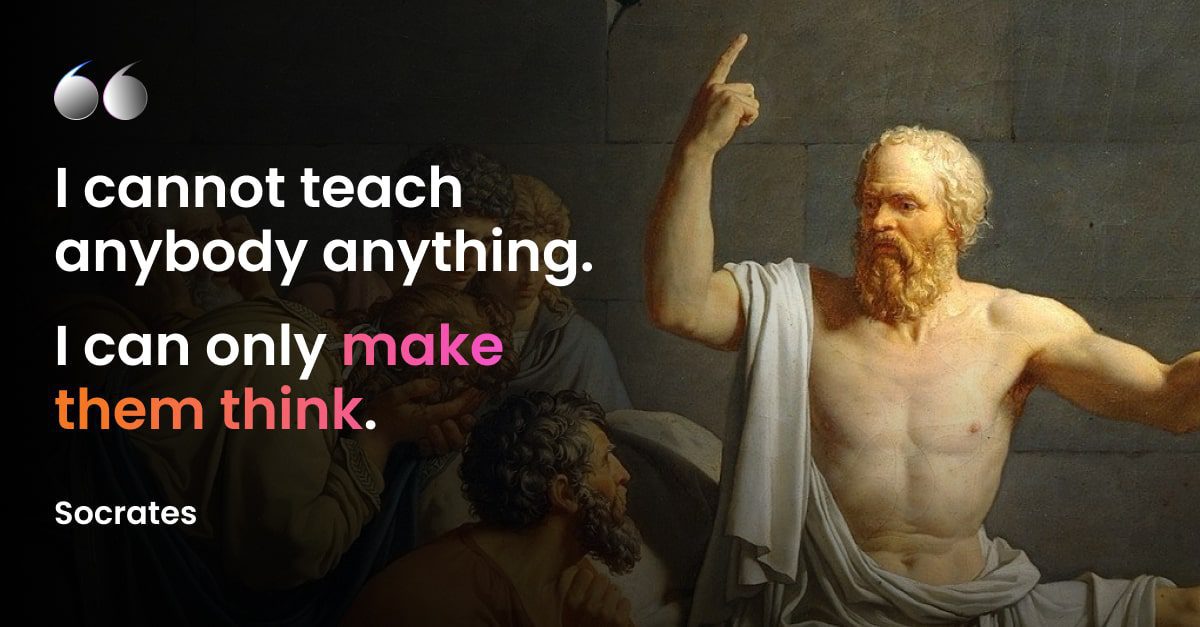I can only make you think
Socrates, the ancient Greek philosopher, is renowned for his unique approach to teaching and knowledge. He believed that true learning could not be achieved through the mere transfer of information from teacher to student. Instead, Socrates emphasized the importance of critical thinking and self-discovery in the learning process.
Unlike traditional educators of his time, Socrates did not claim to possess all the answers. Instead, he saw himself as a facilitator, guiding his students towards deeper understanding by encouraging them to question and examine their own beliefs and assumptions. By engaging in thoughtful dialogue and debate, Socrates aimed to stimulate intellectual growth and provoke individuals to think for themselves.
Socrates’ teaching method, known as the Socratic method, involved a series of probing questions that challenged his students’ existing knowledge and forced them to reevaluate their perspectives. Through this process, Socrates aimed to uncover the truth and promote intellectual humility.
Socrates’ philosophy of teaching has had a profound impact on education throughout history. His emphasis on critical thinking and self-reflection continues to influence modern pedagogy, reminding us that true learning is not about passive absorption of information, but rather an active engagement with ideas that stimulates independent thought and personal growth.





